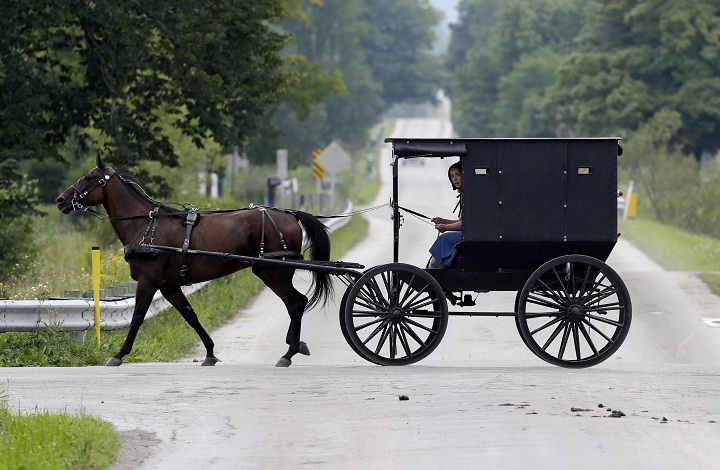TOLEDO, Ohio – A court-appointed guardian is dropping her attempt to force an 11-year-old Amish girl with leukemia to resume chemotherapy after she and her parents fled their home to avoid treatment.

The move filed in court Friday will likely bring an end to a months-long fight between Sarah Hershberger’s family and a hospital that began when her parents decided to halt the treatments because they were making the girl sick.
The guardian, an attorney who’s also a registered nurse, was given the power to make medical decisions for Sarah after an appeals court ruling in October said the beliefs and convictions of the girl’s parents can’t outweigh the rights of the state to protect the child.
But the guardian, Maria Schimer, decided to drop the effort because she doesn’t know where Sarah is now and it has become impossible to monitor her health or make any medical decisions, said Clair Dickinson, an attorney for Schimer.
“It didn’t make sense to drag this on any longer,” he said.
Doctors at Akron Children’s Hospital believe Sarah’s leukemia is treatable, but say she will die within a year if she halts chemotherapy. The hospital went to court after the family decided to stop chemotherapy and treat Sarah with natural medicines, such as herbs and vitamins.

Get weekly health news
Dickinson said an attorney for the hospital told him that if the court allows Schimer to withdraw from the case, the hospital won’t continue its legal push to get chemotherapy for the girl.
Sarah’s father said the family doesn’t oppose modern medicine and that they didn’t make their decision based on religious reasons.
They ended chemotherapy because it was making her too sick and they feared it could end up killing her, the family’s attorney, Maurice Thompson, said.
Sarah and her parents left their home in rural northeast Ohio just days before the state appeals court allowed the guardian to take over medical decisions. The family left the country in late September before returning to an undisclosed location outside Ohio.
Schimer’s attempts to meet with the family were rebuffed, Dickinson said.
The guardian’s decision to withdraw from the case still needs final approval from a county court.
“The judge’s approval of this resignation will pave the way for the family’s return home, which will allow Sarah to receive the family’s preferred treatment under the best possible conditions,” Thompson said.
Sarah’s last known chemotherapy session was in June, but she has undergone alternative-therapy treatments and is doing well, her family has said.
Thompson, who leads the libertarian 1851 Center for constitutional Law in Ohio, said the case came down to fundamental principles and constitutional rights. “We made it clear to our opponents that they were in for a protracted battle,” he said.
Andy Hershberger, the Ohio girl’s father, said this past summer that the family agreed to begin two years of treatments for Sarah last spring but stopped a second round of chemotherapy in June because it was making her extremely sick and she feared the treatments would make her infertile.
The family’s attorney said the girl’s parents made their decision after researching the effects of chemotherapy.
Sarah begged her parents to stop the chemo and they agreed after a great deal of prayer, Hershberger said. The family, members of an insular Amish community, shuns many facets of modern life and is deeply religious. They live on a farm and operate a produce stand near the village of Spencer in Medina County, about 35 miles southwest of Cleveland.
Hospital officials have said they are morally and legally obligated to make sure the girl receives proper care. They said the girl’s illness, lymphoblastic lymphoma, is an aggressive form of non-Hodgkin lymphoma, but there is a high survival rate with treatment.



Comments